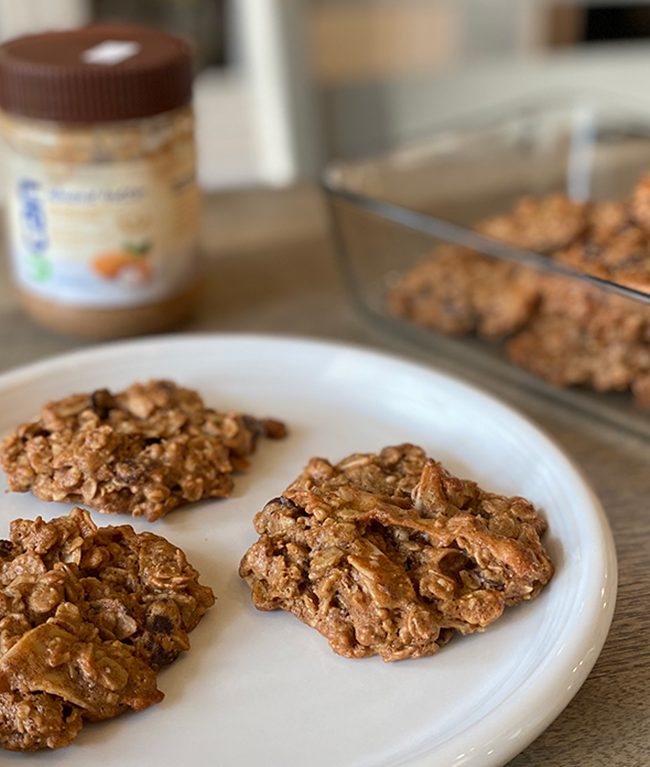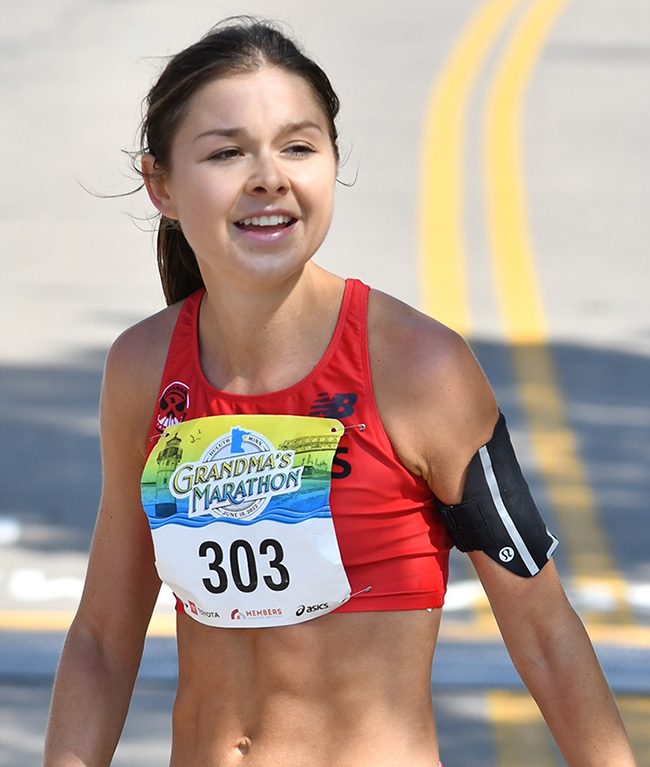
There are two kinds of people in the world: those who let the needle on the fuel gauge get as close as possible to “E” before refilling, and those who head to the pump with miles to spare. If there is a third type of person who gets a little gas after every outing, good for them, but most of us probably don’t live like that.
Regardless of when you choose to purchase gasoline for your car, the human body would prefer to be fueled by the third type of person.
It’s no secret that the “best” nutrition strategies are debated, even among experts. Current research continues to examine different measures of recovery in relationship to various types and timing of nutrition. However, there is general consensus that people who engage in endurance or high-intensity exercise (i. e. running) do not benefit from fasting before or after exercise (Zouhal et al., 2020). In this post, we address post-run caloric nutrition. Nuanced information on fluid and electrolyte ingestion will be addressed later.
What to eat? In short,
- Carbs first (as in prioritized).
- Protein too.
IF YOU’VE EVER BEEN TOLD TO AVOID CARBS TO PREVENT FAT STORAGE, THIS IS NOT THE TIME;
Details:
When you run, your body utilizes a combination of stored carbohydrates and fatty acids to create and sustain the movement. No matter how long, how fast, or how challenging your run was for you, you utilized some combination of each fuel source (carbs and fat). While we would all like to be “good fat burners” and rely heavily on the never-ending supply of fatty acids in our bodies, we need to burn some carbohydrate to access that system at all. And of course, higher-intensity efforts require a greater proportion of carbohydrates overall.
So you need carbs to do the work. Why do they matter so much once you’ve done the workout? When you finish running, your body is in a primed state to accept carbohydrates. Imagine that your muscle cells become little sponges–they need that carb, and if you give it to them, they take it right in! If you’ve ever been told to avoid carbs to prevent fat storage, this is not the time; the carbs will be utilized right away. It’s a completely different process than that which creates fat. In fact, post-exercise carbohydrate restriction suppresses muscle cell signals to generate training adaptations, and leads to potential destruction of bone mass (Hammond et al., 2019).
How much?
Current evidence suggests that at least 1.2 grams of carbs per kilogram of mass (your weight in pounds divided by 2.2) consumed within 30 minutes of exercise most effectively replenishes glycogen stores (Kerksick et al., 2017). By this rule, a 70 kilogram person (154 lbs) should consume about 84 grams of carbohydrates after their workout. For reference, a bagel has about 55 grams of carbs, and a banana has about 30; this would be an appropriate option following exercise. Refined carbs and simple sugars have a bad reputation in our culture as “unhealthy,” but for the athlete, they can provide comparable–arguably preferable nutrition to more fibrous carbohydrates such as whole grains. It’s important to eat nutrient-dense whole foods with fiber and lots of vitamins and minerals, but right after a running workout, simplicity pays off. Higher glycemic (more simple carbs with less fiber and fat) contribute to faster recovery, improved readiness to train again later, and even better sleep (Kerksick et al., 2017; Vlahoyiannis et al., 2018).
What about protein?
Of course protein is important too; it repairs and builds our muscles (Van Vliet et al., 2018). For optimal recovery, one should consume approximately 0.2 to 0.4 grams per kilogram within an hour following exercise (Kerksick et al., 2017). For the 70 kg (154 lb) person, this would be 14 to 28 grams of protein; their bagel has 9 grams of protein, and if they add some peanut butter, they would have close to 20 grams of protein for an acceptable meal.
At the end of the day, many of us don’t count calories or grams of every nutrient that we eat, and that is completely okay. Still, it is important to be aware of our own nutrition practices and how they impact training and recovery. Without doing math for every snack or meal, consciously choose foods that promote glycogen storage and muscle recovery by eating some carbs and protein about 30 minutes after you run.
This webpage has some excellent examples of food combinations for optimal fueling: https://www.usada.org/athletes/substances/nutrition/carbohydrates-the-master-fuel/#:~:text=The%20recommendation%20is%201%2D1.2,for%20up%20to%20four%20hours.
References
Hammond, K. M., Sale, C., Fraser, W., Tang, J., Shepherd, S. O., Strauss, J. A., … & Morton, J. P. (2019). Post‐exercise carbohydrate and energy availability induce independent effects on skeletal muscle cell signaling and bone turnover: implications for training adaptation. The Journal of physiology, 597(18), 4779-4796.
Kerksick, C. M., Arent, S., Schoenfeld, B. J., Stout, J. R., Campbell, B., Wilborn, C. D., … & Antonio, J. (2017). International Society of Sports Nutrition position stand: nutrient timing. Journal of the international society of sports nutrition, 14(1), 33. https://jissn.biomedcentral.com/articles/10.1186/s12970-017-0189-4
Van Vliet, S., Beals, J. W., Martinez, I. G., Skinner, S. K., & Burd, N. A. (2018). Achieving optimal post-exercise muscle protein remodeling in physically active adults through whole food consumption. Nutrients, 10(2), 224. https://www.mdpi.com/2072-6643/10/2/224/htm
Vlahoyiannis, A., Aphamis, G., Andreou, E., Samoutis, G., Sakkas, G. K., & Giannaki, C. D. (2018). Effects of high vs. low glycemic index of post-exercise meals on sleep and exercise performance: A randomized, double-blind, counterbalanced polysomnographic study. Nutrients, 10(11), 1795. https://www.mdpi.com/2072-6643/10/11/1795/htm
Zouhal, H., Saeidi, A., Salhi, A., Li, H., Essop, M. F., Laher, I., Rhibi, F., Amani-Shalamzari, S., & Ben Abderrahman, A. (2020). Exercise Training and Fasting: Current Insights. Open access journal of sports medicine, 11, 1–28. https://doi.org/10.2147/OAJSM.S224919

















